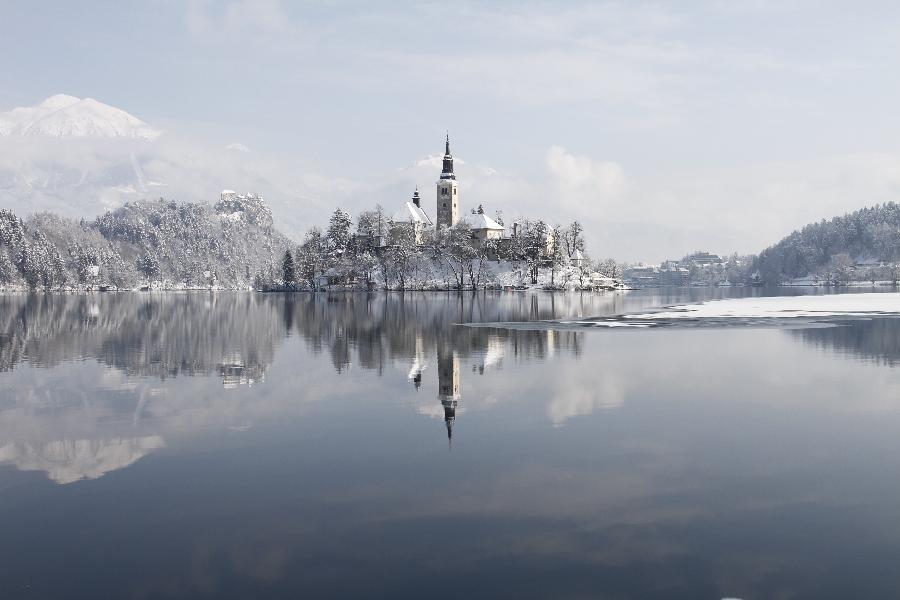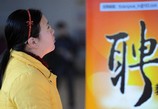
ROME, Feb. 23 (Xinhua) -- Eurozone leaders and financial markets may hold their breath on Sunday and Monday when austerity-hit Italians flock to the polls for an election whose outcome could trigger a resurgence of the eurozone debt crisis.
Final opinion polls indicated that center-left Democratic Party leader Pier Luigi Bersani would secure an overall majority in the lower house, but may fall short of a few seats in the Senate, thus the most likely appears to be a coalition government with the outgoing Prime Minister Mario Monti's centrist party.
The race is far from a foregone conclusion, with media mogul and ex-premier Silvio Berlusconi trailing in polls for the past month and comedian-turned-politician playing the wild card in the third place ahead of Monti.
But the Bersani-Monti alliance could be in the best interests of Italy as well as the wider Eurozone, observers have said.
Josef Janning, an EU expert with the Berlin-based thinktank German Council on Foreign Relations, said that the market would become nervous and Italy's economic recession would deepen if there was no new coalition with strong backing for the government after the election.
"Italy is too big an economy to drift off and discredit the Eurozone. The EU would clearly prefer a government committed to the present reforms and close cooperation with European partners," Janning told Xinhua.
Back in the depths of Eurozone debt crisis in 2011, the country was on the brink of bankruptcy, which forced the then premier Berlusconi out of office and brought in Monti's technocrat government.
For over a year, Monti was fighting tooth and nail to restore Italy's credibility with austerity measures and labor market reforms, until Berlusconi's party withdrew its support last December, prompting the dissolution of the parliament and the early election.
With a distant fourth place in the polls, Monti has little chance to win the election, but his role as a potential ally of Bersani has its own values, especially if Bersani fails to win the Senate.
As the lower house, or the 630-strong "Chamber of Deputies," and the 315-member Senate have equal law-making powers, Italy's prime minister always needs the support of both houses to govern.
A supporter of Monti's reforms in the parliament, Bersani has pledged to continue with the former's discipline policy. But he intends to add his own priorities of employment and fairness to tackle pressing issues in the country.
"A Bersani-led government would seek to cushion the reforms with emphasis on social issues. Let's hope its economy may pick up at some point," Janning added.
As Europe's most sluggish large economy for the past two decades, Italy saw its economy contracted by 2.2 percent in 2012 along with a record high unemployment rate, not to mention public complaints about Monti's painful therapy of spending cuts and tax increases.
But still, Monti is well respected and trusted in Brussels, and most EU countries want him to be involved in the new government rather than Berlusconi, according to Fabian Zuleeg, chief economist at the Brussels-based think tank European Policy Center.
"Berlusconi still thinks in terms of electoral gifts for his supporters which Italy cannot afford, and the market would react badly to a Berlusconi victory," Zuleeg said.
"Monti is a much more constructive partner, championing structural reforms," he added.
What adds to the anxiety is that nearly 30 percent of voters still remain undecided or may abstain, making the final outcome even harder to predict.
Even with the best scenario of a coalition government led by Bersani, the outcome would, at best, have a positive impact only in the medium term if the right policies were pursued, according to Zuleeg.
Echoing Zuleeg's view that the election would bring little change in short time, Janning also said Italy's economic recession could continue.
"For decades, depreciation and deficit spending have been the recipe for Italian policy makers, and they still need to adjust to an entirely new tool box for crisis management," he said.
















 Provocative propaganda on environmental protection leaded by Chen Guangbiao
Provocative propaganda on environmental protection leaded by Chen Guangbiao


![]()
